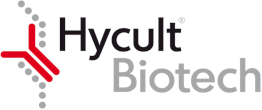Synonyms: Alpha-1 protease inhibitor, Alpha-1-antiproteinase, Serpin A1
Gene name: SERPINA1, AAT, PI


Reactivity
Human
Applications
Immuno assays, Western blot
Clone
Mouse IgG2a
ESCLUSIVAMENTE PER USO DI RICERCA (RUO) e non per uso terapeutico o diagnostico su uomini o animali. Il prodotto NON è un Dispositivo Medico o un Diagnostico in Vitro.
PRODUCT FOR RESEARCH USE ONLY (RUO) and not for therapeutic or diagnostic use on humans or animals. The product is NOT a Medical Device or an In-Vitro Diagnostic (IVD).



